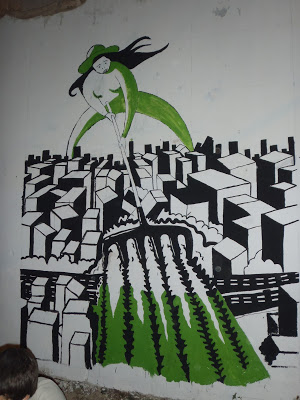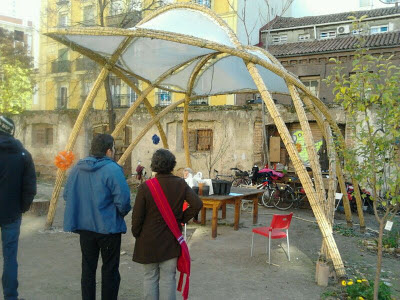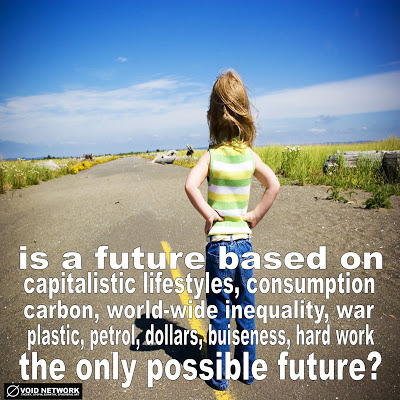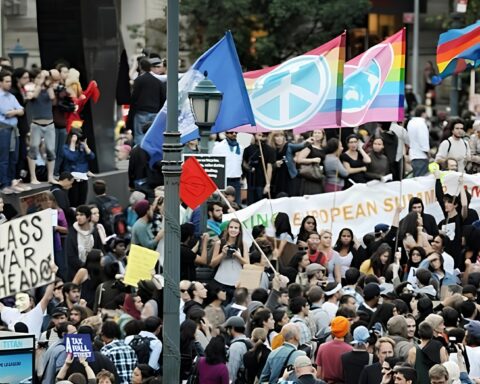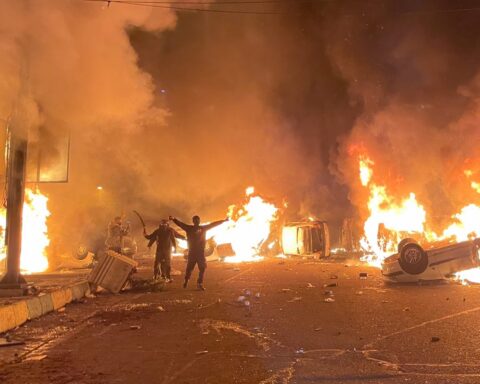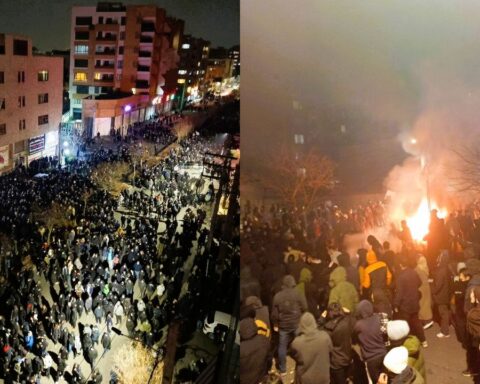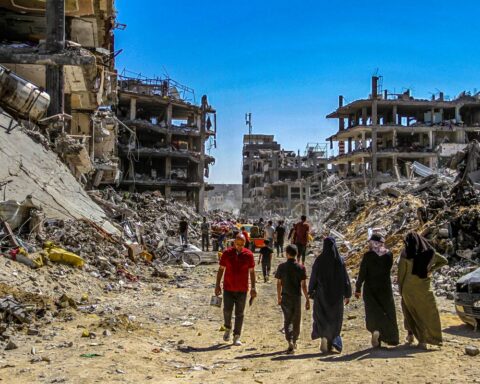Hi comrades!
We write you to spread a Spanish´ (Mallorca) iniciative called “take the town” (tomalaciudad). It´s about take empty places (private or statal properties) and make them squares, communitary gardens, places to meet each other and work together (Exarchia´s way).
It is a political action based in assamblies, a critic of urban design, building a common space for the people.
Sorry my english is not enough to describe but this is the video with english subtitles and this is the manifest
Hope you like it. We ask you to make diffusion.
TAKE THE CITY!
It has been a long time decisions are taken for us but without us.
Once upon a time, there were collective spaces where people lived together and took decisions amongst equals, cultivated dialogue, fraternal cooperation and work for the common benefit.
Nowadays, our lives have been mortgaged to a political and economical system that has impoverished us and made us more dependent.
They called the political irresponsibility of putting in someone else’s hands the affairs that matter to us “freedom”.
We were educated within a childish and selfish outlook, articulating society in closed compartments where ruthlessness and mistrust prevail, rather than collaboration and respect.
We were “the people” and they made us “the public”, we gave up being actors to become dejected spectators of a life managed from above.
The design of our cities is also a purely political issue: the arrangement of gardens, fenced by barriers, closed by night; flowers lined up like paving stones, bushes pruned like walls.
Urban space was thought up for a mute transit of vehicles, persons and merchandising. The stage is sterile and the flow never stops – because, if we stop, order is in danger.
We have realized business and state production ways do not respond to either our wishes or our needs, and, instead, it generates corrupt and unjust structures and is hugely damaging for the environment.
What would happen if we started managing the world ourselves, from below, in a different way?
Let’s imagine, for instance, a transformed city, more natural, where, instead of so much tarmac, paving stones and sterile gardens, we grew aromatic herbs or plants from which we could extract natural remedies; where, instead of ornamental parks, we had orchards and ecological vegetable gardens, looked after by all together, children, grown ups, elders and youths.
What would happen if, instead of maintaining a highly expensive and often inefficient state public sector, we built a network of people’s services, autonomous, where the labour that supported it was managed by people’s assemblies and not according to the profit of a few; where each of us would contribute as we can and where we can; where we could develop in a wholly way as persons, both to give and to receive, not being mere passive consumers anymore?
It is not hard to imagine if we take into account that social state services are suffering ongoing cuts and the model of welfare state appears unviable, judging by the heavily indebted economical situation.
Today, our streets overflow with closed spaces: empty houses, unused plots, unfinished buildings. We start to see the ruins that reveal the decadent state of a society in crisis. A society that we do not choose but that we pay dearly.
Thus, we will take those unused spaces, previously usurped by the logics of private profit and public loss, giving them new uses for the benefit of all. So, we invite you all to participate into the new society we are constructing in those places.
We are not here to do abstract demands, it is not enough to be indignant, we are here to meet each other, populate a space and take life in our hands. We are the inhabitants, not mere passers-by, of a world that is our home, and it is our responsibility to build it.
Our strength will be measured by what we do, which, moreover, will be an example of what we are able to.
So, let’s do it, we shall not wait anymore.
Once upon a time, there were collective spaces where people lived together and took decisions amongst equals, cultivated dialogue, fraternal cooperation and work for the common benefit.
Nowadays, our lives have been mortgaged to a political and economical system that has impoverished us and made us more dependent.
They called the political irresponsibility of putting in someone else’s hands the affairs that matter to us “freedom”.
We were educated within a childish and selfish outlook, articulating society in closed compartments where ruthlessness and mistrust prevail, rather than collaboration and respect.
We were “the people” and they made us “the public”, we gave up being actors to become dejected spectators of a life managed from above.
The design of our cities is also a purely political issue: the arrangement of gardens, fenced by barriers, closed by night; flowers lined up like paving stones, bushes pruned like walls.
Urban space was thought up for a mute transit of vehicles, persons and merchandising. The stage is sterile and the flow never stops – because, if we stop, order is in danger.
We have realized business and state production ways do not respond to either our wishes or our needs, and, instead, it generates corrupt and unjust structures and is hugely damaging for the environment.
What would happen if we started managing the world ourselves, from below, in a different way?
Let’s imagine, for instance, a transformed city, more natural, where, instead of so much tarmac, paving stones and sterile gardens, we grew aromatic herbs or plants from which we could extract natural remedies; where, instead of ornamental parks, we had orchards and ecological vegetable gardens, looked after by all together, children, grown ups, elders and youths.
What would happen if, instead of maintaining a highly expensive and often inefficient state public sector, we built a network of people’s services, autonomous, where the labour that supported it was managed by people’s assemblies and not according to the profit of a few; where each of us would contribute as we can and where we can; where we could develop in a wholly way as persons, both to give and to receive, not being mere passive consumers anymore?
It is not hard to imagine if we take into account that social state services are suffering ongoing cuts and the model of welfare state appears unviable, judging by the heavily indebted economical situation.
Today, our streets overflow with closed spaces: empty houses, unused plots, unfinished buildings. We start to see the ruins that reveal the decadent state of a society in crisis. A society that we do not choose but that we pay dearly.
Thus, we will take those unused spaces, previously usurped by the logics of private profit and public loss, giving them new uses for the benefit of all. So, we invite you all to participate into the new society we are constructing in those places.
We are not here to do abstract demands, it is not enough to be indignant, we are here to meet each other, populate a space and take life in our hands. We are the inhabitants, not mere passers-by, of a world that is our home, and it is our responsibility to build it.
Our strength will be measured by what we do, which, moreover, will be an example of what we are able to.
So, let’s do it, we shall not wait anymore.
